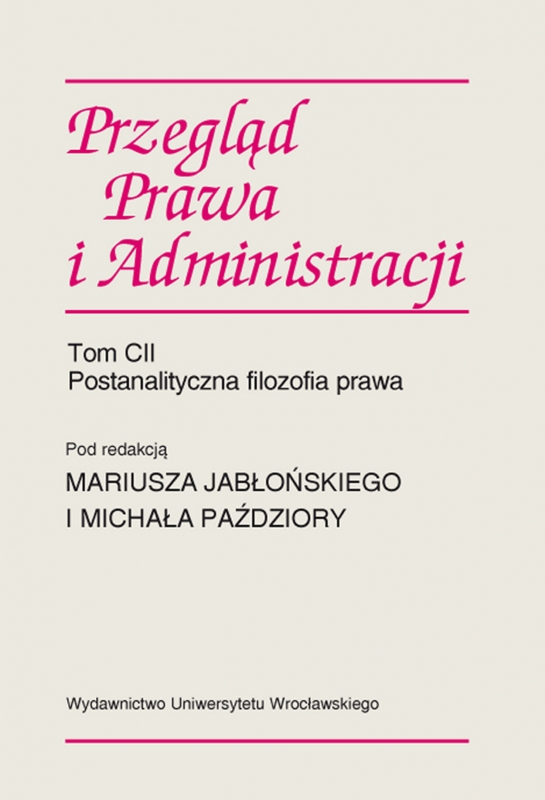

Artykuły archiwalne

THE SIGNIFICANCE OF JURISPRUDENCE IN CONTEMPORARY CRIMINAL LAW LITERATURE
For many years legal theory and, in particular, jurisprudence have been important to the criminal law literature. Criminal law scholars tend to eagerly address the concept of primary and secondary norms in their theoretical discourse in an attempt to confront it with a dogmatic construct of a criminal offence. Such studies are typically conducted upon belief that addressing primary andsecondary norms in dogmatic analysis is serving the purpose of systematising and methodologically ordering the discussions belonging to the realm of the study of the concept of criminal offence.
A certain fascination of criminal law scholars with primary and secondary norms — which is, by
the way, not immediately understandable to the legal theorists themselves — should be treated
with some skepticism, emerging from the question of what the dogmatics and the justice system really have to gain from situating the elements of the dogmatic construction of the criminal offence within the structure of primary and secondary norms as precisely as possible. Searching support for the dogmatic analysis in contemporary jurisprudence, the current scholars of criminal law should probably not refrain from building theories of their own entirely.